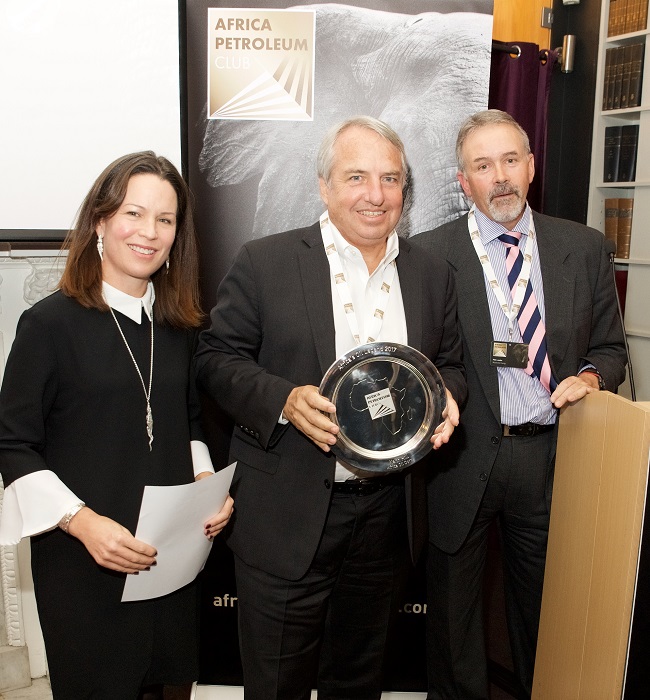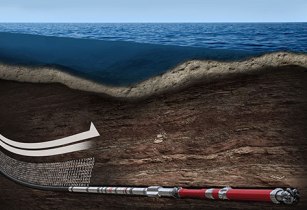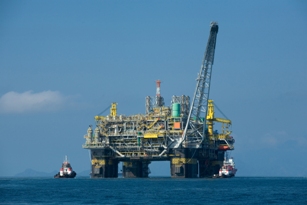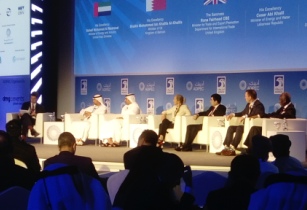Sperry Drilling, a Halliburton business, has released JetPulse telemetry service, aiming to provide high-data rate transmission of drilling and formation evaluation measurements in oil and gas industry
Exploration
Protecting oil and gas critical infrastructure against cyber threats
Strategies to combat complex cyber and critical infrastructure security threats were the focus of a session at the ADIPEC Security in Energy conference on 14 November
In a keynote address, Don Randall, former head of security and chief information security officer, Bank if England, posed the question "Who is policing your IT? Is is the same person as the one who is managing and maintaining it, and possibly covering it up?" While the CIO (Chief Information Officer) and CISO (Chief Information Security Officer) should work in harmony, the two functions should be independent, he argued, whatever the type of organisation. He also advised that companies should have a single point of intelligence gathering, interpretation and response, and that attention should be given to geopolitical analysis.
He highlighted the need for collaboration and partnership between the public and private sector to tackle the cyber security threat. "Law enforcement bodies cant deal with this on their own, the enforcement agencies need to talk to each other, private companies need to talk to each other." Sharing information is critical, he said, adding "the key word is trust."
Educating staff on cyber and fraud could reduce the risk of fraud by 80 per cent, he said, advising "Share with your staff the basic philosophies and practices."
Cyber security should be a board level concern, he concluded.
Following on from Mr Randalls keynotes address, delegates heard from Mohamed Al Jneibi, representing the UAEs Global Defense Centre, Alfio Rapisarda, senior vice president of security, Eni, and Dr Zhang Jian, chief technology officer, CNPC.
The moderator, Irene Copruz, section head, planning and IT security, Western Region Municipality, said that data security is "very critical" because of the risk of exposure for "billions of dollars worth of information".
"The systems we use for our workers to work remotely are the same systems the hackers are using," she said.
Mr Al Jneibi said the UAEs oil and gas industry was the first priority for cyber security protocols and said the "convergence of both OT and IT was our area of concern".
Mr Rapisarda said that he had the "crazy idea" of putting IT and security together because "nobody was looking after why we are attacked or when we are attacked." He said this means of intelligence-gathering has proven to be "very effective, very efficient".
"We are embedded in the system and we are at board level," said Mr Rapisarda, reflecting Mr Randalls comments in regard to ensuring that cyber security leaders are represented at board level for all organisations.
Mr Rapisarda said that without taking into account all considerations, including geopolitical, financial, technical, industrial and environmental factors along with security, operators will only achieve "compliance without being effective". He also advocated cooperation between private and public sector players rather than "fighting one against the other". He said that this was not an option when dealing with cyber security threats.
Dr Zhang said that the challenges presented by CNPC working with the UAE were considerable because of ambitious targets, such as 70 per cent oil recovery. One of the main challenges is meeting human resources requirements, according to Dr Zhang. He stressed the importance of finding the right people and developing a strong talent pool.
"The first step to a more oil and gas-specific set of standards is to establish working groups with oil and gas," said Dr Zhang. He echoed the sentiments of Mr Randall and Mr Rapisarda when he said that private and public cooperation was essential.
Referring back to the need for a strong talent pool, Dr Zhang said that he had found that often government employees are "behind internationally recognised standards and need to catch up".
He added that working in the Middle East present its own challenges because "it is in a unique position geographically" and geopolitical events are a consideration for all cyber security systems.
A risk-based approach with a focus on cooperation and rapid integration was advocated by Dr Zhang to ensure public and private stakeholders are all engaged.
"Geopolitical instability makes cyber security more complicated," said Dr Zhang. "We always talk with local authorities in each of the countries where we operate."
Big Five Annual Board Awards 2017 recognises best in oil and gas industry
The winners of the Big Five Annual Board Awards 2017 where Oil Review Africa was lead media partner were announced at a special ceremony in London
Hosted by the Africa Petroleum Club, leading oil and gas companies gathered at the Royal Institution on 16 November to celebrate individual and corporate achievements in the African petroleum industry.
Paul Dailly, founding partner and SVP, New Ventures, Kosmos Energy, won Distinguished Contribution to the African Industry, for his direct involvement in the Equatorial Guinea discoveries with Triton, followed by success with Kosmos Energy in Ghana, Mauritania and Senegal. He was described as "probably the most successful exploration geologist in Africa in the past 15 years".
The second award went to Anadarko Petroleum for Contribution to African Petroleum and Excellence. 
Phil Loader, executive vice president, Global Exploration, Woodside Energy, Perth said the company redefined the meaning of 3D Seismic technology in Algeria after finding more than three billion barrels of oil, then paid tribute to having the "foresight" to partner with Kosmos Energy following their discoveries in Ghana. He also mentioned the company took the lead in uncovering 100 tcf of natural gas in Mozambique.
Cairn Energy was awarded Independent Player in Africa of the Year. They were the first company to drill in deep-water offshore Senegal, which remains relatively under-explored. One of the two basin discoveries, the SNE field, was the largest global oil discovery of 2014. A third drilling programme, which started this year, is now underway and set to increase this already significant resource base.
ENH won African National Oil Company of the Year. They recently signed-off a US$7bn investment to export natural gas from Mozambique to Coral South. Once built, the floating LNG plant, with a capacity of about 3.4 million tons a year, will draw gas from the Rovuma Basin, which is seen in the industry as transformational for Mozambique.
Loader added, "If you bear in mind that 20 years ago Mozambique was the poorest country in the world, had been through civil war, it now hosts thanks to Anadarko, ENI and others, 100 tcf of resources in the ground and is going to be a significant gas producer. This is a true testimony to the industry."
The fifth award: Service and Supply Company of the Year went to PGS for their extensive coverage and service delivery in Angola and Namibia, Cote dIvoire, North West Africa, São Tomé to Congo, southern and east Africa, and Togo to Nigeria.
More than 100 recipients and 75 companies have been acknowledged for their contribution to oil and gas exploration since the annual Big Five Board Awards began in 1997.
Eni signs deal for Block 52 offshore Oman
The government of the Sultanate of Oman, Oman Oil Company Exploration and Production (OOCEP) and Eni have entered into an Exploration and Production Sharing Agreement (EPSA) for Block 52, located offshore Oman
The signing ceremony was attended by the Minister of Oil and Gas of Oman, Mohammed bin Hamad Al Rumhi, OOC CEO, Isam Al Zadjali, Eni’s CEO, Claudio Descalzi, and Qatar Petroleum’s President and CEO, Saad Sherida Al Kaabi.
Situated offshore in the southern region of Oman, Block 52 has an area of approximately 90,000 sq m, with water depths ranging from 10 to over 3,000 metres. At the same event, held in Muscat, Eni and Qatar Petroleum signed an agreement for the assignment of 30 per cent interest in Block 52 to Qatar Petroleum.
"The signing of the Block 52 EPSA will assist Eni in strengthening its presence in the Middle East region. We wish to establish with the Sultanate of Oman, which is a historical Oil & Gas producer in the region, a long-lasting relationship in the best tradition of Eni. It is also remarkable that, the same day, we are welcoming Qatar Petroleum as a partner in Block 52, to join our efforts with such a strong partner that is currently leading the LNG business worldwide", said Eni CEO, Claudio Descalzi.
International cooperation focus between oil and gas producers and consumers at ADIPEC
Ministers from six countries - UAE, Bahrain, UK, Lebanon, Canada and Sudan - all at different stages in their oil and gas journeys, took part in a panel discussion at ADIPEC highlighting the importance of cooperation between producers and consumers









